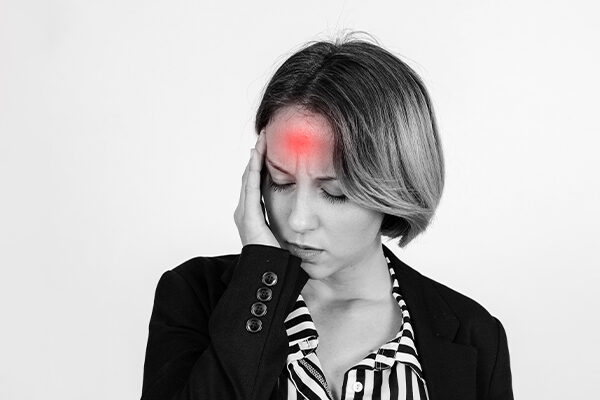Last Updated on April 4, 2025
What is Interstitial Cystitis?
Interstitial cystitis (IC), also known as bladder pain syndrome (BPS), is a chronic condition causing bladder pressure, pain and urinary urgency. It predominantly affects women, but men can also develop the condition. The condition is often misdiagnosed as a urinary tract infection (UTI), but unlike UTIs, it does not respond to antibiotics. IC is believed to result from bladder lining defects, immune system dysfunction, or nerve hypersensitivity.
Research suggests that genetic predisposition, chronic inflammation, and mast cell activation may also play roles in the development of IC. Additionally, some experts propose that IC could be linked to other pain syndromes, such as irritable bowel syndrome (IBS) and fibromyalgia, indicating a possible systemic component rather than a condition solely affecting the bladder. A history of pelvic surgeries or recurrent infections may also contribute to the onset of symptoms.
Types of Interstitial Cystitis/Bladder Pain Syndrome
IC/BPS presents in various forms, including:
- Ulcerative IC: Characterized by Hunner’s ulcers, which cause inflammation and bleeding in the bladder.
- Non-ulcerative IC: Marked by pinpoint hemorrhages (glomerulations) on the bladder wall but no ulcers.
- Myofascial Pain Syndrome-Associated IC: Accompanied by pelvic floor dysfunction and muscle tenderness.
- Neurogenic IC: Arises from nervous system dysfunction, leading to abnormal pain signals.
- Allergic IC: Associated with hypersensitivity reactions, often coexisting with other autoimmune disorders.
What is the Life Expectancy for Someone with Interstitial Cystitis?
There is no evidence to suggest that interstitial cystitis life expectancy is directly reduced by the condition. Although IC does not shorten lifespan, it significantly impacts quality of life. Patients experience chronic pain, sleep disturbances, depression, and anxiety, which can indirectly affect overall health. Proper management and lifestyle modifications can help individuals lead fulfilling lives despite the condition.
Can Interstitial Cystitis Cause Cancer?
Interstitial cystitis does not directly cause cancer. However, chronic bladder inflammation may increase the risk of bladder abnormalities. Some studies suggest that prolonged irritation may contribute to cellular changes, but there is no definitive link between interstitial cystitis life expectancy and bladder cancer risk. Routine monitoring and medical checkups are crucial for early detection of any complications.
How Long Does Interstitial Cystitis Last?
Interstitial cystitis is a chronic condition with no definitive cure. Symptoms tend to vary over time, alternating between periods of intense flare-ups and times of relative remission. While some patients experience mild symptoms manageable with lifestyle changes, others endure severe, long-term pain requiring medical intervention. Effective treatment strategies can significantly improve quality of life.
Living with Interstitial Cystitis

Managing interstitial cystitis life expectancy involves a comprehensive approach, including dietary modifications, stress management, and pelvic floor therapy. Common coping strategies include:
- Dietary Adjustments: Avoiding acidic foods, caffeine, alcohol, and artificial sweeteners.
- Hydration: Drinking adequate water to dilute urine and reduce bladder irritation.
- Bladder Training: Scheduled voiding to improve bladder control.
- Pelvic Floor Therapy: Exercises to strengthen pelvic muscles and reduce spasms.
- Emotional Support: Counseling and support groups to help manage the emotional toll.
Treatment for Interstitial Cystitis
Effective treatment options aim to reduce symptoms and improve interstitial cystitis life expectancy:
Medications:
- Pentosan polysulfate sodium (Elmiron): The only FDA-approved oral medication for IC.
- Antihistamines: Reduce bladder inflammation.
- Tricyclic antidepressants: Help relieve pain and improve bladder function.
- Pain relievers: NSAIDs and opioids for severe pain management.
Electronic Nerve Stimulation:
- TENS Therapy: Activate nerves to block pain signals.
- Sacral Neuromodulation: Implanted device that regulates bladder function.
Bladder Instillations:
- DMSO (Dimethyl Sulfoxide): Directly instilled into the bladder to reduce inflammation.
- Heparin and Lidocaine: Soothe bladder irritation and improve symptoms.
Lifestyle Changes:
- Stress Management: Yoga, meditation, and relaxation techniques.
- Physical Therapy: Helps alleviate pelvic muscle tension.
- Exercise: Low-impact activities like swimming and walking.
Interstitial Cystitis and Endometriosis
Studies suggest a strong correlation between interstitial cystitis life expectancy and endometriosis, as both conditions involve chronic pelvic pain. Women with endometriosis have a higher risk of developing IC, possibly due to shared inflammatory pathways. Managing one condition often alleviates symptoms of the other.
Frequently Asked Questions About Interstitial Cystitis
Is Interstitial Cystitis a Progressive Disease?
While IC symptoms can worsen over time, they do not necessarily progress in every case. Proper treatment can help maintain symptom stability and improve interstitial cystitis life expectancy.
Can IC Be Cured?
There is no known cure, but symptom management strategies can significantly improve quality of life.
Is Interstitial Cystitis an Autoimmune Disease?
Although IC shares characteristics with autoimmune disorders, its exact classification remains unclear. Some researchers believe immune system dysfunction plays a role in its development.
Can Pregnancy Improve or Worsen IC Symptoms?
Pregnancy affects IC differently in each patient. Some report symptom relief, while others experience worsening bladder pain due to hormonal changes and bladder pressure.
Takeaway
While interstitial cystitis life expectancy remains unaffected, the condition can have a profound impact on daily life. Proper management, including medication, lifestyle adjustments, and medical therapies, can help control symptoms and improve quality of life.
Seeking medical attention for persistent bladder pain is crucial, as early intervention can prevent symptom escalation and associated complications. Patients are encouraged to work closely with healthcare providers to develop a personalized treatment plan that addresses their specific symptoms and needs.




